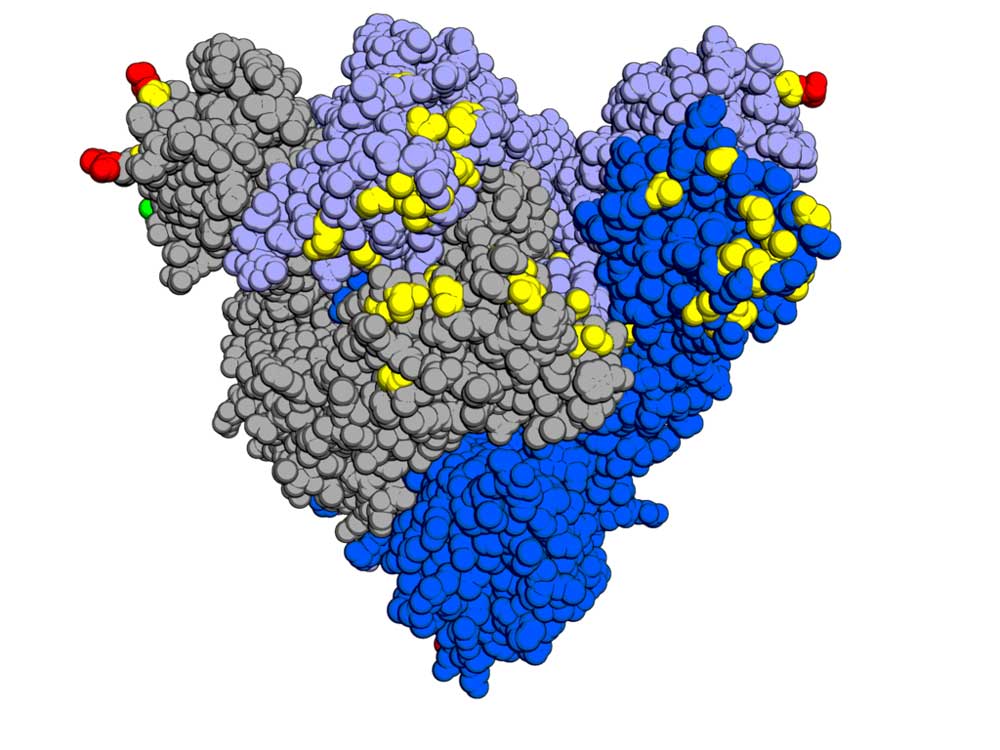
Senior Consultant Interventional Pulmonology and Sleep Medicine Specialist, Yashoda Hospitals Hyderabad
(Q) Doctor Viswesvaran, we’re hearing of the Omicron variant now. Given this is the most mutated version yet, please tell us if our vaccines are effective against this?
(A) The coronavirus uses a spike protein to gain entry into the human cells. This spike protein was used as a target to prepare most of the currently available vaccines, to induce an immune response in the human body against the virus.
But the Coronavirus has been mutating. Mutations are genetic alterations that occur in viral proteins, which make the virus capable of evading the immune response by the human body.

The current Omicron variant of the COVID-19 virus was found to have more than 30 mutations in the spike protein of the virus.
Since most of our vaccines act by producing an immune response against this spike protein of the virus, any alterations in this protein may alter the protective immune response produced by the vaccine.
So there are theoretical possibilities of vaccines becoming less efficacious with such viral mutations. However, we still don’t have enough evidence to confirm this phenomenon with the new variant strain.
The World Health Organization, in association with multiple researchers throughout the world is trying to understand the various characteristics of viral mutations which will alter the protective effect of the existing vaccines.
(Q) Tell us why we need vaccines when Pfizer has brought in a tablet for COVID-19, which has shown high efficacy. Pfizer is even allowing several countries, India included, to produce the generic version.
(A) The medicines for COVID-19 infection are used as a treatment once a patient is infected and cannot prevent them from getting one. Vaccines are the only available solution as of date to protect us from severe COVID 19 infection and mortality.
Besides, the available medicines are not potent enough to confer long-term immunity. Though monoclonal antibodies can provide passive immunity to a certain extent, unlike vaccines, their effects are short-lasting, making vaccines the preferable choice for protection against COVID 19 infection.
In addition most of the currently available medicines are not potent enough to confer long term immunity, making vaccines the preferable choice for protection against COVID 19 infection.
(Q) About booster shots – are we looking at a situation where we’d be required to take a booster shot even after the two doses of the viral vector vaccines COVISHIELD and COVAXIN?
(A) Booster doses are required to enhance the immune response because most of the protective effects of prior vaccinations wane off with time.
Though in India, the booster doses are yet to be available for the population at large, many other countries have given the go-ahead for vaccination booster doses following complete initial vaccinations.
Such booster doses of vaccines are more appropriate for high-risk groups like health care professionals and patients with underlying immunocompromised conditions.
(Q) Can people take vaccine shots from more than one company to be on the safe side? For example, someone who took two doses of COVISHIELD can also go for Sputnik V?
(A) It has been observed in a few trials that mix-matching of booster doses of vaccine was found to trigger better immune response than administering the vaccine of the same class.
However, the evidence is not strong, and more clinical studies are required to understand and confirm this finding. Though more data is required to substantiate the improved efficacy of this method of vaccination, few scientific advisory boards across the world have advocated its use.
(Q) Why are the cases low these days? Is it because of vaccines, or have we reached the herd immunity stage?
(A) Definitely, vaccinations have played a major role in decreased incidence of severe forms of COVID 19 infection and mortality. However, in addition to vaccination, increased awareness amongst the public and improved adherence to social pandemic norms like social distancing, wearing of mask and hand sanitation have resulted in decreased transmission of the virus.
Though attainment of herd immunity is uncertain now, studies done at community levels have shown development of protective antibodies in asymptomatic patients, indicating possibility of ongoing subclinical disease with resultant seropositivity.
(Q) There is a report that vaccinated people in India are also increasingly contracting Omicron?
(A) Omicron is the new variant of the COVID-19 virus with a greater number of mutations in the spike protein, which plays a key role in entry of virus into the cells. This theoretically can result in decreased efficacy of existing vaccines as most of the currently available vaccines are based on the immune response generated to the spike protein.
However, we don’t have enough evidence as of now to substantiate this possibility. WHO continues to endorse vaccination as a proven option to prevent the possibility of severe forms of COVID 19 infection and death and advocates for complete vaccination of eligible persons.
(Q) We have seen some revolutionary techniques such as mRNA and DNA-based vaccines. Although hoping that we would never see another pandemic, if we do see it, may we expect vaccines within weeks and not years?
(A) A lot of scientific advancements are happening in the domain of vaccine manufacturing. Advancements in the existing infrastructure and increased financial funding in this sector, especially in the aftermath of the COVID 19 pandemic, may result in the availability of better and safe vaccines in the future.